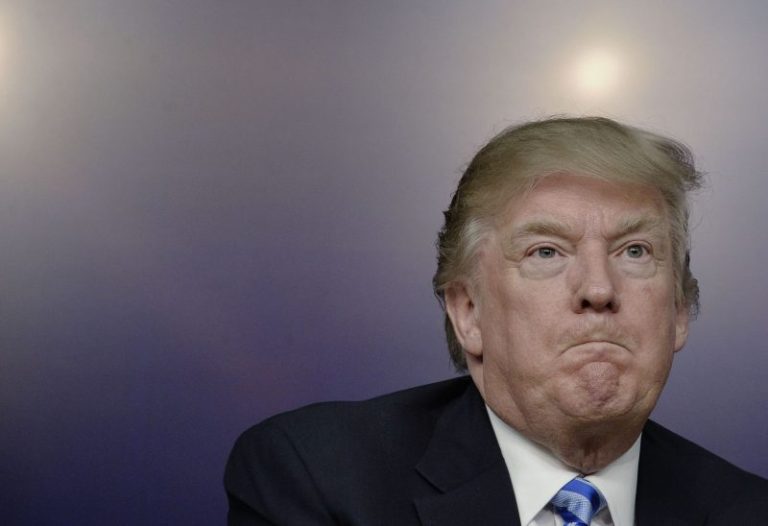NEW YORK — Donald Trump knew about a 15-year tax fraud carried out by longtime executives at his namesake company, a prosecutor argued Friday, saying the illegal activity ended when the company cleaned up its business practices around the time Trump entered the White House.
At the close of the Trump Organization’s criminal trial, prosecutors introduced the idea that Trump had knowledge of crimes committed by his top deputies. The claim was a way of supporting their theory that the real estate, hospitality and golf company is criminally culpable for and benefited from tax cheating.
“This whole narrative that Donald Trump was blissfully ignorant was just not real,” Assistant District Attorney Joshua Steinglass said during his summation. He asked jurors, who are likely to begin deliberations in the case on Monday, to dismiss the idea that executives who committed crimes had simply gone “rogue.”
At the same time, Steinglass also told the jury that it “doesn’t matter” whether they believe Trump knew about the fraud, because the former president is not considered a conspirator in the case.
Trump has not been charged with wrongdoing. Allen Weisselberg — his former chief financial officer and a Trump family employee for a half-century — pleaded guilty to fraud this summer. Testimony about the fraud from Weisselberg and Trump Organization comptroller Jeffrey McConney — who was granted immunity automatically by state law when he appeared before the grand jury — were key elements of the prosecution’s case.
Prosecutors say the company profited from the fraud in various ways, including by cutting down its payroll costs and by saving on its Medicare tax burden.
For the company to be found guilty of wrongdoing and fined up to $1.6 million, the district attorney must prove that Weisselberg or McConney had “some intent” to help the company in addition to cutting tax liability for themselves. The fraud involved untaxed luxury apartments, Mercedes-Benzes and private school tuition for Weisselberg’s grandchildren.
In a Truth Social post earlier this week, Trump appeared to refute any suggestion he knew what Weisselberg and McConney had done, writing that there “was no gain for ‘Trump’” and that “we had know knowledge of it.”
Defense attorney Susan Necheles reminded jurors in her summation Thursday that Weisselberg and McConney had testified that Trump “did not know how things were reported on Allen Weisselberg’s tax returns” and argued that Trump did not know about his executives’ tax crimes.
During the trial, prosecutors had largely avoided the issue and did not present evidence to directly refute Weisselberg and McConney’s contention. But on Friday, New York Supreme Court Justice Juan Merchan ruled the Trump Organization’s lawyers opened the door to discussing whether Trump was aware by telling jurors Weisselberg had “betrayed” the Trump family.
“The fact that this was sanctioned and a practice that was known to Mr. Trump directly rebuts that incorrect narrative,” Steinglass argued in a discussion that took place outside the presence of the jury.
Merchan agreed to allow prosecutors to make that point, noting that the Trump Organization defense team “repeatedly” mentioned Trump during the trial, seemingly “in an attempt to distance Mr. Trump from the defense table and from these proceedings.”
Weisselberg and other company executives received annual bonuses reported on tax forms known as 1099s, which are typically used to pay independent contractors, not employees. According to testimony, it was a standard operation of the Trump Organization’s accounting team before 2017, when Trump became president.
Trump Organization lawyers have argued Weisselberg — who is still on the payroll at the company but is on paid leave — orchestrated the tax fraud in secret, hiding his conduct from Trump. Weisselberg testified that Trump approved his salary and annual bonus amounts but did not know about his tinkering with how the income was reported, which saved him $1.7 million in taxes from 2005 to 2017.
Weisselberg pleaded guilty in August to crimes including criminal tax fraud and conspiracy. Facing up to 15 years in prison, he agreed to testify against the company in exchange for a significantly reduced sentence of five months in jail. He must also pay around $2 million in back taxes and fines.
The case stems from a three-year investigation by Manhattan District Attorney Alvin Bragg and his predecessor, Cyrus R. Vance Jr.
Bragg has said the Trump investigation is ongoing and has suggested his team — which has been rebuilt since Vance left office almost a year ago — is undertaking a fresh review of past focuses of the lengthy investigation. The criminal probe originally stemmed from a review of a hush-money payout to adult-film actress Stormy Daniels during Trump’s 2016 presidential campaign, allegedly to keep her quiet about a sexual encounter they had.
Separately, Trump, Weisselberg and three of Trump’s adult children, along with the Trump Organization, have been sued by New York Attorney General Letitia James (D) for alleged fraud related to the manipulation of Trump-owned property values and practices of purposely deceiving lenders and insurance providers to obtain better loan and policy rates.
That case is expected to go to trial late next year and could substantially cripple the Trump Organization’s ability to do business in New York.

